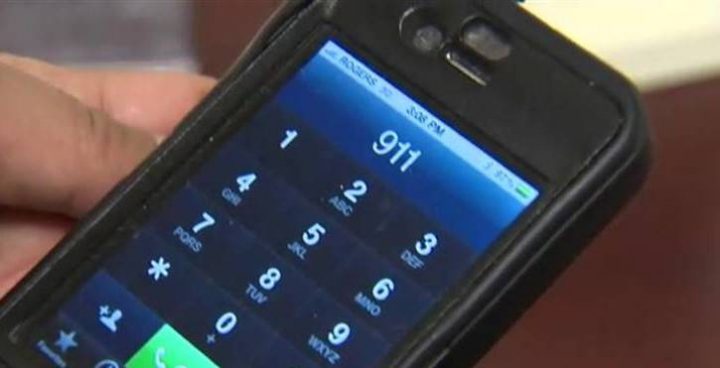How confident are you that you could describe your location to someone over the phone in an emergency?

It’s a question B.C.’s 911 call takers want you to ask yourself, as a growing percentage of calls for emergency services come in via cellphone.
Madison Sheane, one of the Lower Mainland’s police call takers, says it’s a common misconception that 911 operators can tell your exact location if you’re calling from a mobile device.
The reality, however, is that’s only the case if you call from a landline.
“I think TV and movies have kind of tricked the public into thinking there’s a blinking dot on the screen and we know exactly where you are,” she said.
“It’s actually a combination of kind of GPS and cell towers, so we get a general idea of where you are within a few blocks, but we’re not there yet.”

According to E-Comm, the agency that manages B.C.’s 911 calls, 74 per cent of emergency calls now come from cellphones.
That means being able to accurately relay location information to operators is more crucial than ever.
“Location is the most important thing for us to find out,” said Sheane.
She said that operators are trained to ask detailed questions to try and narrow down a person’s location, but that callers should be aware of what street they are on, nearby cross streets, landmarks or businesses.
She said it’s also helpful if people know compass directions, and can stay on the phone as long as possible.
“We’ve had people pass the phone to a passerby who can better describe the area,” she said.

Ryan Lawson, director of public safety initiatives with E-Comm, said in the future, emergency services will be better able to pin down location thanks to a North America-wide initiative called Next Generation 9-1-1 (NG9-1-1).
The Canadian Ratio-television and telecommunications Commission (CRTC) has directed Canada’s phone companies to update their networks to take advantage of NG9-1-1.
“That’s going to give us the ability to potentially receive even more accurate location information from mobile devices, information we don’t receive today such as perhaps unit number, subscriber information,” said Lawson.
But Lawson said it’s still not clear when the NG9-1-1 system will be active in B.C., or what components will be supported in the province.
Until then, he said it’s vital that people know where they are when they call for help.
“With the explosion of mobile devices, it’s important for people to understand it’s not like television, we don’t see a little dot on the map,” he said.
“It’s very helpful when people are calling us from a mobile device that they have some sense of where they are so we can get help to them faster.”
- B.C. child-killer’s attempt to keep new identity secret draws widespread outrage
- Inquest hears B.C. hostage was lying on her captor before fatal shooting
- ‘We’ve had to make a 180’: What Oregonians say they got wrong with decriminalization
- B.C. judge grants shared custody of family dog in landmark ruling




Comments